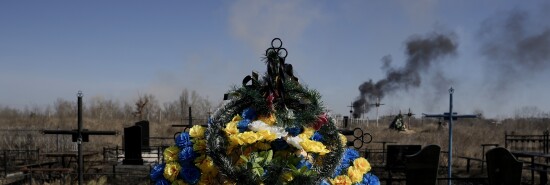
Pentagon scrutinized for not cooperating with Ukraine war crimes investigation
Mike Brest
Video Embed
Senators rebuked the Department of Defense for holding up assistance to international efforts aimed at investigating and trying war crimes committed by Russian forces in Ukraine.
Secretary of Defense Lloyd Austin has declined to cooperate with the International Criminal Court over “concerns about reciprocity going forward.” That rationale came under renewed scrutiny during Wednesday’s Senate Foreign Affairs Committee hearing, which included testimony from Beth Van Schaack, the United States ambassador-at-large for global criminal justice.
DEBT LIMIT DEAL: WHERE IT STANDS AND WHAT IS STILL TO COME
“It is, I think, safe to say that there is a range of very actionable information that we have been able to collect that might be very helpful to a justice process anywhere and we can share that with other entities,” she told lawmakers. “We can share that with the commission of inquiry for the U.N., we can share that with individual states that might be prosecuted. We can share that with the prosecutor general but we can’t share it with the ICC … because we don’t have consensus yet on that.”
Van Schaack then confirmed that the Department of Defense is the entity holding up the consensus.
Committee Chairman Bob Menendez (D-NJ) said in his opening statement that he asked the department to participate in Wednesday’s hearing so an official could explain its position.
“I asked the Department of Defense to participate in today’s hearing, so we could better understand why they are blocking implementation of federal law,” the New Jersey Democrat said. “Whatever they’re thinking, a refusal to implement the law is unacceptable in the situation blocking critical U.S. assistance for investigations into atrocities in Ukraine and is dangerous to our system of government. The Defense Department does not get to pick and choose which laws it will obey.”
Late last year, Congress modified long-standing policies on Americans aiding the ICC, specifically with the intent of helping prosecute war crimes in Ukraine.
Ranking member Sen. Jim Risch (R-ID) reiterated Menendez’s comments during his opening remarks, stating, “I would’ve liked to have someone from the Department of Defense talk to us about why they think they don’t have to comply with the laws we’ve passed. It doesn’t make sense.”
He warned, “We’re not done with that yet. I’m sure they know that.”
Earlier this month, Austin told a Senate Appropriations subcommittee, “I do have concerns about reciprocity going forward. I remain concerned about the protection of U.S. military personnel.”
The secretary repeatedly said that the department “firmly supports” the goal of holding Russian military officials accountable for the war in Ukraine, though, to him, that doesn’t necessarily include providing them with this intelligence, given his concern that the ICC could bring charges against U.S. soldiers for actions taken abroad later on.
Austin also acknowledged to lawmakers that he’s “aware of the legislation” and saw “no deficiencies in” it, even though he doesn’t believe the Pentagon should provide evidence to the ICC.
Van Schaack said she “would work tirelessly to ensure that no U.S. personnel will be brought before the ICC if that were ever to come to pass again” when asked if she shared Austin’s concerns. “But I do not think that that is an acute risk at this time.”
CLICK HERE TO READ MORE FROM THE WASHINGTON EXAMINER
Russian troops have allegedly committed more than 86,000 war crimes and crimes of aggression, Andriy Kostin, the prosecutor general of Ukraine, said earlier this week.
The ICC announced arrest warrants for Russian President Vladimir Putin and Alekseyevna Lvova-Belova, the commissioner for children’s rights in the Office of the President of the Russian Federation, in mid-March, accusing them of being responsible for the forced deportation of thousands of children to Russia, where they have undergone political reeducation training.
